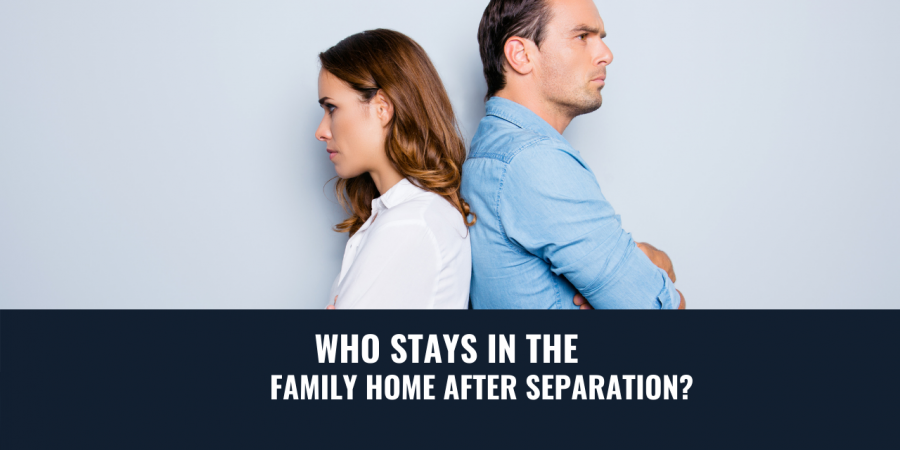Separation can be one of the most emotionally charged, traumatic events that can occur in a person’s life and the devastating effects are often amplified when there are children involved. No matter the length of the relationship, the breakdown of a relationship can be hard enough to deal with on its own, without having to work out who will stay in the family home and who will leave, or whether all parties can reside under the one roof while finalizing their separation.
There is no straightforward answer to this question as each individual circumstance is different and the decision or outcome will vary depending on a range of different factors that may or may not be applicable in your circumstances.
If the separation is amicable and the parties are able to have a civil discussion, then the parties may be able to decide together what option will work best for their family in the interim until the financial and property matters are sorted out.
If there are children involved, both parties should make a conscious effort to consider the needs of the children first and foremost, and decide on the course of action which causes the least disruption to their schooling, routines and wellbeing.
For example, it may be easier for one party to continue to be the primary caregiver due to the working hours of the other party, and for the working parent to find alternative accommodation in the meantime. However, if the split is amicable, perhaps both parties can remain under the one roof and agree between themselves as to the tasks each will undertake until the house is sold.
Naturally, an amicable separation is the best case scenario but sometimes people are just not able to put their emotions to one side to be able to have a civil discussion. In many cases one party demands that the other party leave the house (with or without the children) or simply changes the locks so they cannot get in.
In some cases, both parties simply refuse to leave the property and the home becomes a breeding ground for conflict, acrimony and tension. Oftentimes, parties assume that the person who owns the house is the one that will stay in the property, which may not always be the case.
If separation occurs and there is no ability for the parties to agree between themselves as to the living arrangements in the immediate short term, then the Court can assist in making an order for ‘’exclusive occupation’’, which specifies that one party can remain living in the home pending interim or final settlement of property matters between the parties.
Before making such an order, the Court considers a variety of factors including, but not limited to, the need for stable living arrangements for any children, any family violence issues, the likelihood of tension or conflict causing physical, emotional or psychological harm to any person/children, the financial implications of alternative accommodation (including the specific needs of either party and/or children).
Generally speaking, the Court must decide, after consideration of these factors, that it is not reasonable, practicable or sensible for the parties to remain in the same home. Frustration or unhappiness between the separating parties will generally not be enough for the Court to make an exclusive occupation order.
The period after separation is often wrought with tension, emotions are high, and negativity can escalate quickly without warning.
Affinity Lawyers has a team of experienced, caring family lawyers who are well placed to guide you after separation, and provide you with caring, compassionate legal advice so that you know your rights, responsibilities and obligations, and can make informed and confident decisions during this tumultuous time.
Telephone our friendly Gold Coast team today on 5563 8970 to arrange a consultation to discuss your current circumstances, or if you need advice in relation to any area of family law.

